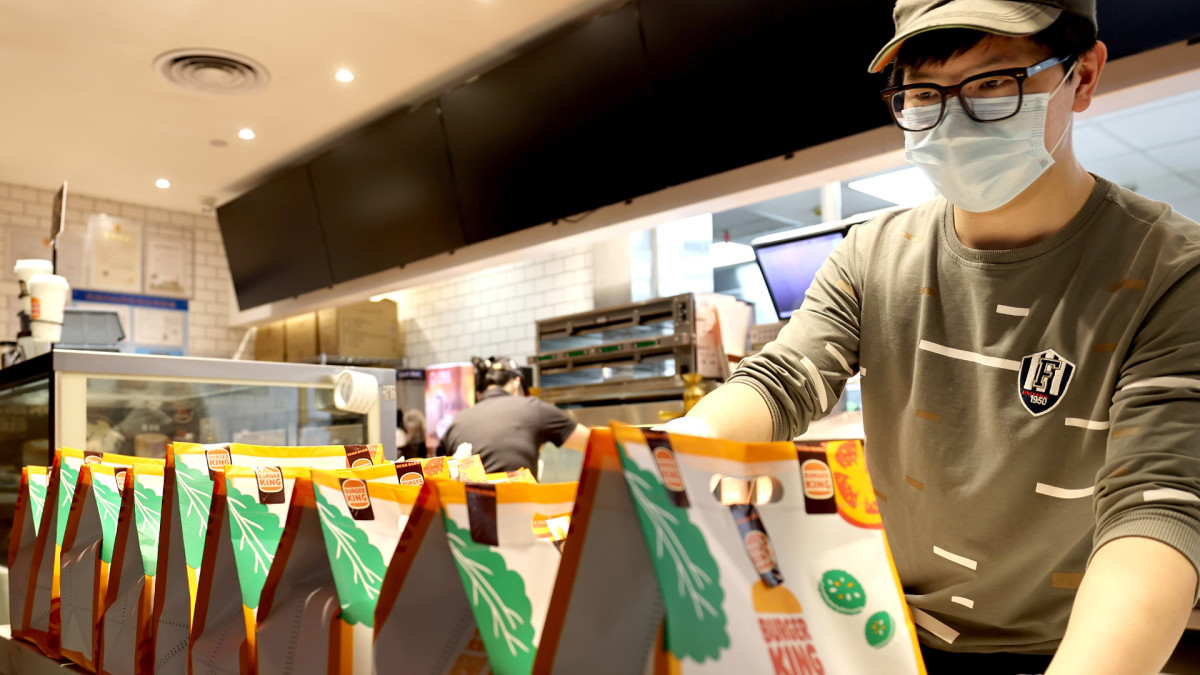What You Need To Know

Burger King closing stores has become a significant topic of discussion among fast-food enthusiasts and industry analysts alike. In recent years, the iconic burger chain, known for its flame-grilled burgers and catchy advertising campaigns, has faced various challenges that have led to the shuttering of numerous locations. As consumers, it is essential to understand the factors contributing to these closures and what they mean for the future of Burger King.
In this article, we will delve into the reasons behind the closing of Burger King stores, analyze the implications for the brand and its customers, and explore the broader trends in the fast-food industry. We will also provide insights into the company's strategic responses to these challenges and highlight what loyal customers can expect moving forward.
Whether you are a fan of the Whopper or simply curious about the state of the fast-food industry, this article will equip you with the knowledge you need to navigate the evolving landscape of Burger King and its competitors.
Table of Contents
Understanding the Reasons Behind Store Closures
The primary reasons for Burger King closing stores can be attributed to several interconnected factors:
- Financial Performance: Many Burger King locations have struggled to maintain profitability amidst rising operational costs.
- Competition: The fast-food market is fiercely competitive, with chains like McDonald's, Wendy's, and newer entrants continuously vying for market share.
- Changing Consumer Preferences: As consumers become more health-conscious, the demand for fast-food options that offer healthier choices has increased.
- COVID-19 Pandemic: The pandemic has accelerated trends such as remote work and decreased foot traffic, significantly impacting sales at many locations.
Financial Performance
Financial struggles have been a major driver of store closures. According to recent reports, Burger King's parent company, Restaurant Brands International, has faced declining sales in some markets. This has forced the company to reassess its operations and close underperforming locations.
Changing Consumer Preferences
In addition to financial challenges, changing consumer preferences have also played a role. A growing number of customers are seeking healthier dining options, and fast-food chains that fail to adapt may find themselves at a disadvantage.
Impact on Employees and Local Communities
The closures of Burger King stores have far-reaching consequences, particularly for employees and local communities. Some of these impacts include:
- Job Losses: Store closures often result in layoffs, affecting employees who may rely on their jobs to support their families.
- Economic Impact: Local economies may suffer as businesses that rely on foot traffic from the restaurant experience decreased sales.
- Brand Reputation: Frequent closures can negatively affect Burger King's brand reputation, leading to decreased customer loyalty.
Burger King's Strategic Response
In response to the challenges it faces, Burger King has implemented several strategic initiatives aimed at revitalizing the brand and improving its financial performance:
- Menu Innovation: The company has introduced new menu items to cater to changing consumer preferences, including healthier options.
- Digital Transformation: Investing in technology and digital ordering platforms has become a priority to enhance customer convenience and engagement.
- Store Redesigns: Some locations are undergoing redesigns to create a more inviting atmosphere and improve the overall dining experience.
Comparison with Competitors
To understand the challenges Burger King faces, it's essential to compare its strategies and performance with those of its competitors:
- McDonald's: Known for its extensive menu and global presence, McDonald's has successfully adapted to consumer trends with healthier options.
- Wendy's: Wendy's has focused on quality ingredients and transparency, appealing to health-conscious consumers.
- Chick-fil-A: This chain has seen remarkable growth due to its strong customer service and menu focus, setting a high bar for competitors.
Future Outlook for Burger King
The future of Burger King remains uncertain as the company works to navigate its challenges. However, several trends indicate potential pathways for recovery:
- Increased Focus on Delivery: As consumers increasingly prefer convenience, enhancing delivery options could prove beneficial.
- Expansion into Emerging Markets: Exploring growth opportunities in emerging markets may help the brand regain its footing.
- Collaboration with Food Delivery Services: Partnerships with third-party delivery services can help boost sales and reach a broader audience.
Customer Reactions and Brand Loyalty
Customer reactions to store closures vary widely. While some loyal customers express disappointment, others may seek alternatives among competing fast-food chains. Building and maintaining brand loyalty will be crucial for Burger King as it works to navigate these challenges:
- Engagement Strategies: Engaging customers through promotions and social media can help maintain interest in the brand.
- Loyalty Programs: Implementing effective loyalty programs can encourage repeat visits and strengthen customer relationships.
Conclusion
In conclusion, Burger King closing stores is a multifaceted issue driven by financial challenges, changing consumer preferences, and increased competition. The impact on employees and local communities cannot be overlooked, as job losses and economic declines can have lasting effects. However, with strategic responses such as menu innovation and digital transformation, there is potential for recovery and growth.
Call to Action
We encourage you to share your thoughts on the future of Burger King and your favorite menu items in the comments below. If you found this article informative, please share it with friends and family or explore other articles on our site for more insights into the fast-food industry.
Thank you for reading, and we hope to see you back soon for more engaging content!
You Also Like
Anisha: The Dazzling Dallas Cowboys CheerleaderYahoo Pickem: Your Ultimate Guide To Winning Fantasy Sports
Jared Leto Young: A Deep Dive Into The Early Life And Career Of A Multi-Talented Star
Jana Love Island Before Surgery: A Transformational Journey
Tariq Nasheed Twitter: Exploring His Influence And Impact
Article Recommendations
ncG1vNJzZmiZlKK2r3rBqKmdnaKhrq%2Bw0mespGaTpLpwwdKnnLCrZmSvtr7Gnqlmo5mjtG6vy6iqoqaXYsC1u9GeqmegpKK5